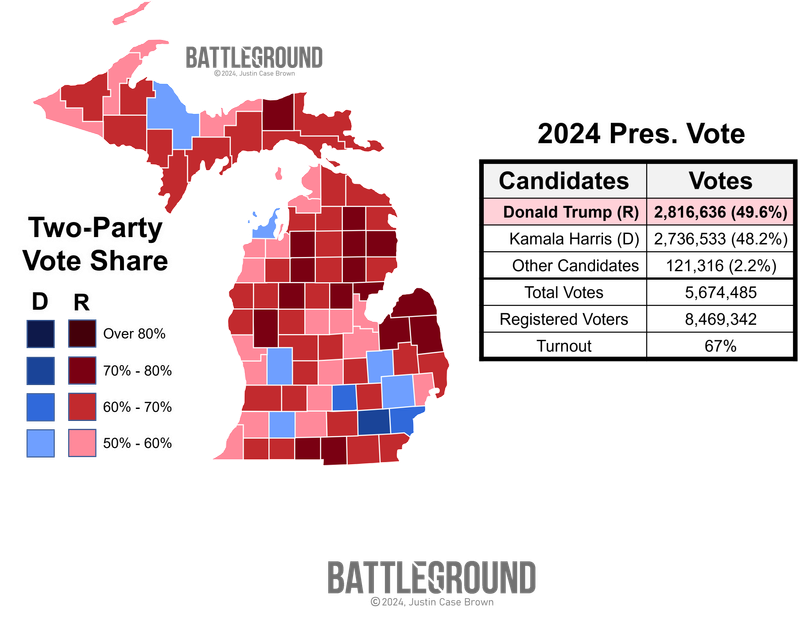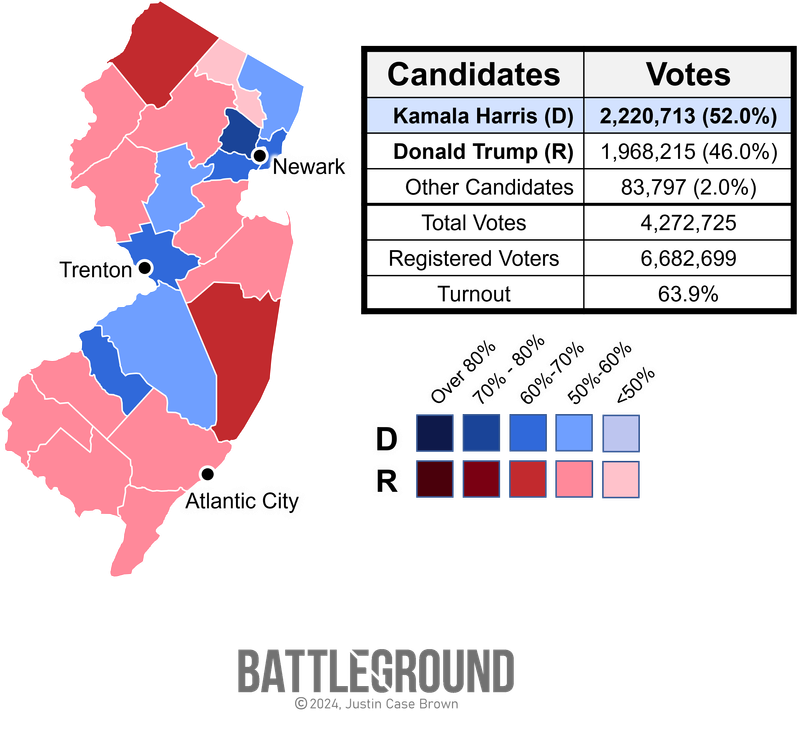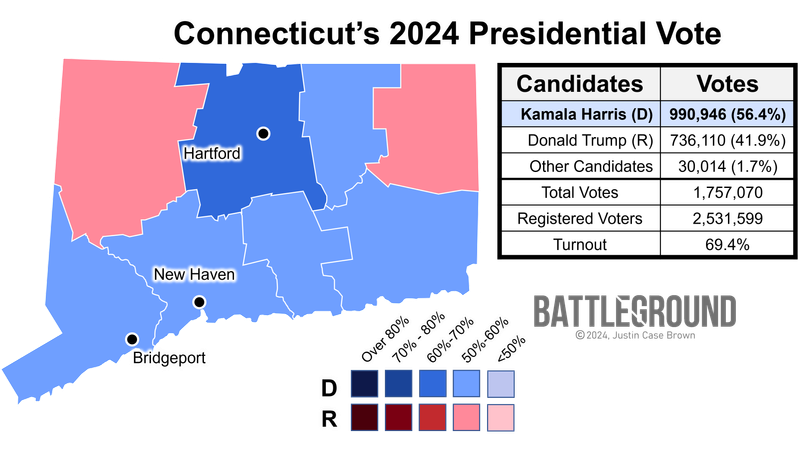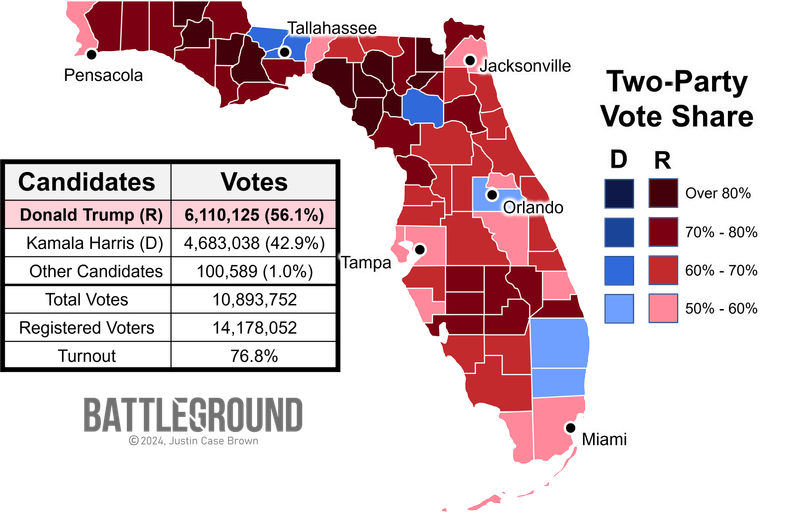Democrats' Gains in Indiana Suburbs Washed Away by Losses in Indianapolis
While Democrats gained ground in Indianapolis' suburban counties, their losses in urban areas further complicate a path to a win.
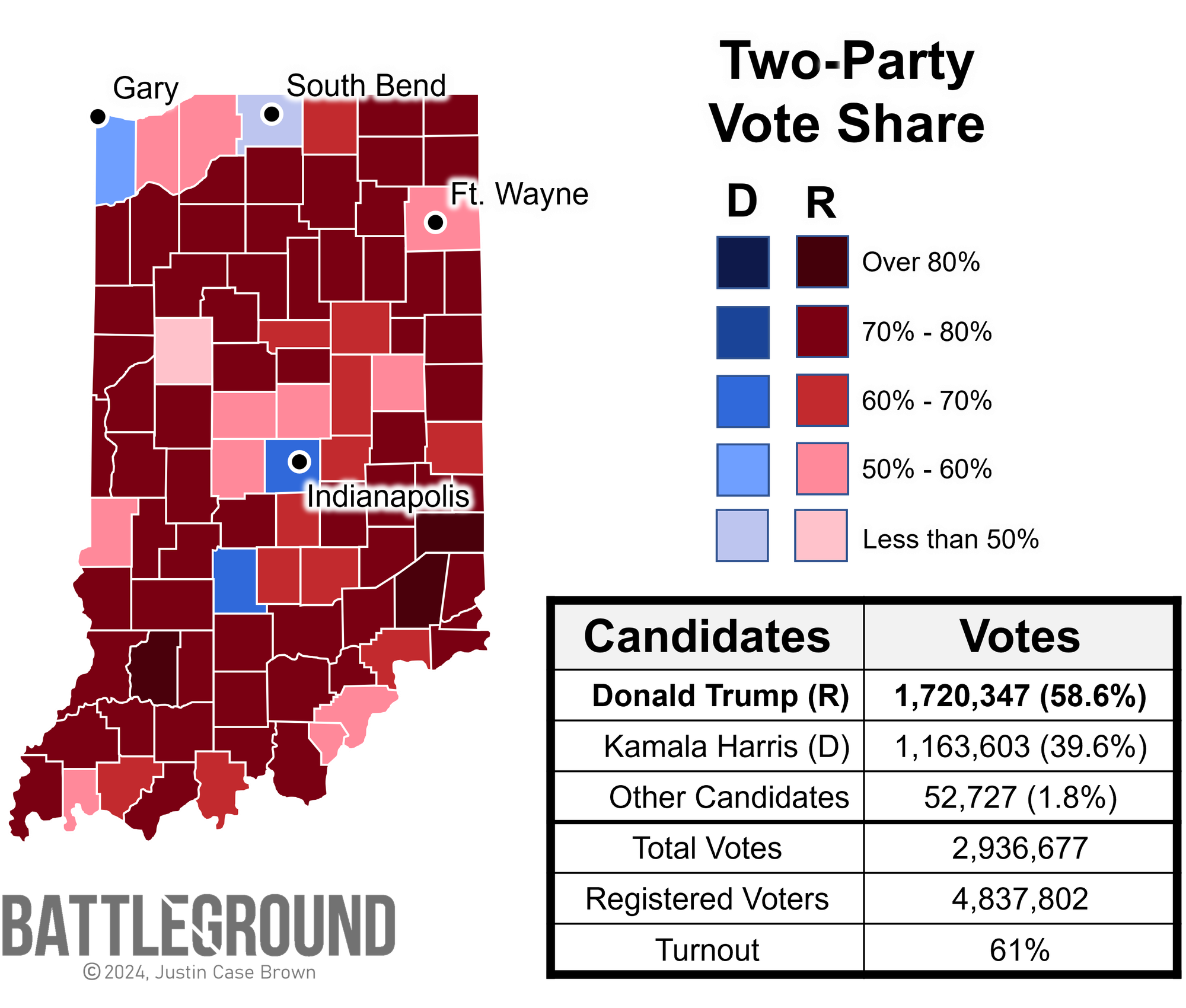
Overall voter participation was down in Indiana in 2024, almost completely due to Democrats' losses. Harris received ~76,000 less votes than Biden did in 2020 while Trump managed to add about 2,000 votes to his 2020 total. Much of this downturn in turnout can be traced to the state's urban counties as they're responsible for 84% of the total voting deficit between the 2020 and 2024 elections. Otherwise, this election follows the state's established trend of supporting Republicans as the state has only voted for a Democratic presidential candidate once since the 1960s.
The one bright spot for Democrats can be found in Indianapolis' northern suburbs. Democrats successfully added to their base in the suburban counties of Boone, Hancock and Hamilton that lie to the north and east of Indianapolis. Roughly 4,600 more voters across these three counties turned out in support of Harris when comparing to Biden's 2020 totals, while Trump only gained about 1,500 votes in these counties. While this may seem like small potatoes, these growing suburban counties have become a target for local Democrats in recent years. The problem though is that these gains are washed away by the loss of over 37,000 voters in Marion county, home to Indianapolis. This tug-of-war has quickly become an existential problem for the Democratic party across the country.
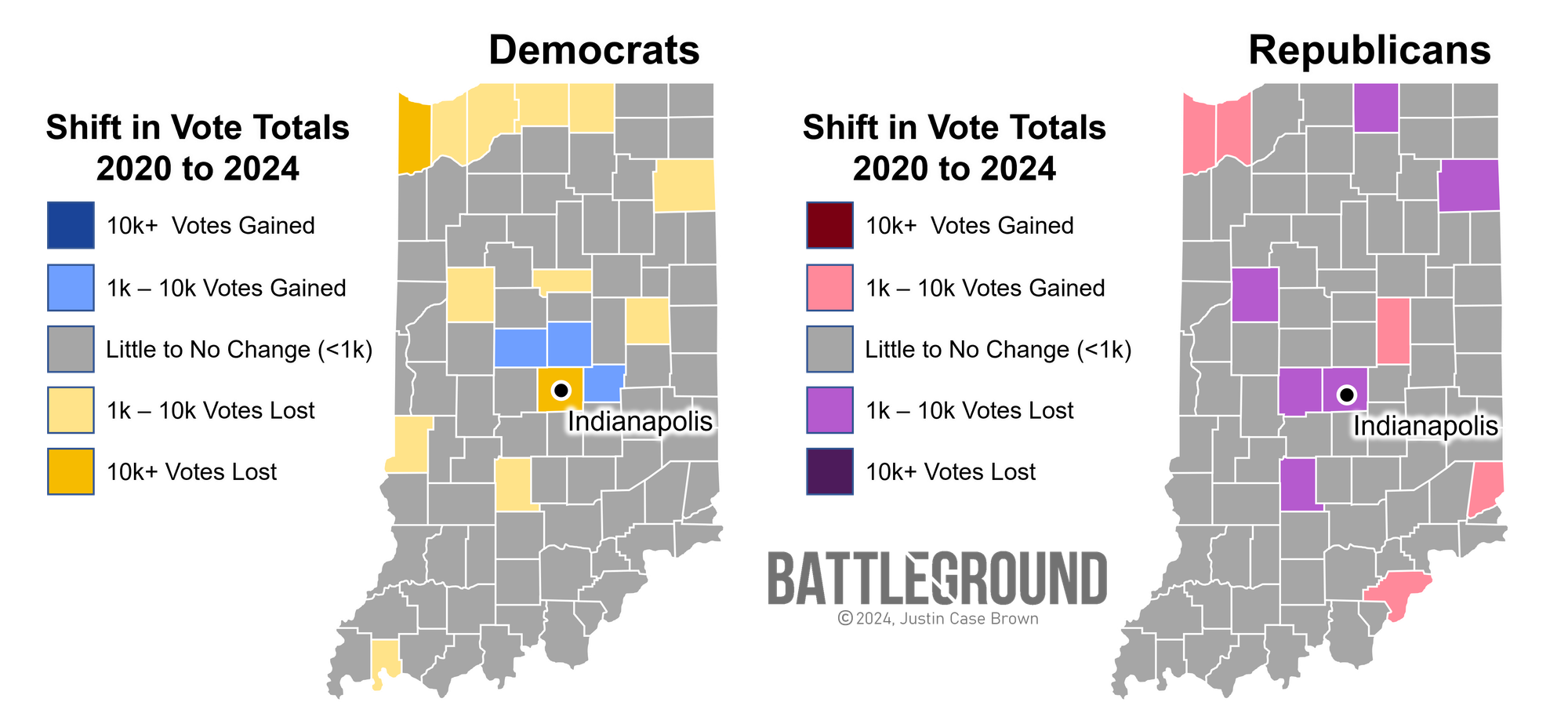
When Democrats like Vice President Kamala Harris attempt to appeal to suburban and rural voters by taking more moderate stances, they risk alienating left-leaning voters in deep blue cities that the party desperately needs to win. This is most easily seen when looking at the Democratic establishment's support of Israel's genocide in Gaza: polling has consistently shown that this stance has alienated the left-wing of the party and hampered Democratic turnout across the country. To be fair, Indiana is a deeply conservative state where such left-wing policies simply aren't popular. But what's most damning about this turn away from the left is that this strategy did not lead to gains for any of Indiana's statewide Democratic candidates. Last November, Indiana also held elections for governor and one of its US Senate seats. Despite running moderate candidates, Democrats saw deeper losses to Republicans in these races as well.
Indiana's history makes the state especially difficult for today's Democratic party. Since it was settled "from the bottom-up," Indiana is ideologically more similar to Southern states than to its neighbors like Michigan and Illinois. Its steadfast commitment to conservatism simply doesn't align well with the any faction of the Democratic party. That said, the recent strategy of serving up milquetoast centrists simply isn't working for Democrats.
Leftover Links
- Learn more about Indiana's ugly history with the Ku Klux Klan.
- Indiana Democrats have been holding "empty chair" town halls to shame their Republican opponents but they've also faced resistance from their own voters.

